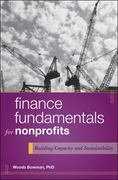8. The mathematics of savings How Much Have You Saved and How Much More Do You Need? The interest earned on a savings deposit is a function of four variables: The amount of money held on deposit (PV) The method to be used in calculating interest-for example, simple versus compound interest The interest rate applied to the amount on deposit (1) The frequency with which the account's interest is earned-for example, annually, semiannually, quarterly, monthly, or daily Another important variable is the amount of time during which the funds are held in the savings account (n). These variables and their interaction determine the account's balance at a particular point in time. How do these variables work together to determine an account's balance? Which of the following formulas would you choose to calculate the future balance on an account that earns compound interest? FV - PV x (1 +i) xt O FV - (PV x i " O v - PV x (1 +if O FV - PV x (1 + i) Now let's use these fundamental concepts to answer questions involving several different situations. Use the following table to see selected entries from the Future Value Interest Table. Interest Factors Periods 4.50% 5.00% 5.50% 6.00% 6.50% 7.00% 7.50% 8.00% 8.50% 9.00% 1.3609 1.4071 1.4547 1.5036 1.5540 1.6058 1.6590 1.7138 1.7701 1.8280 1.4221 1.4775 1.5347 1.5938 1.6550 1.7182 1.7835 1.8509 1.9206 1.9926 Ch 04 Assignment - Managing Your Cash and Savings 2.1719 1.8385 1.9172 2.0839 1.9990 1.5513 1.6191 1.6895 1.7626 1.4861 1.9672 2.0610 2.1589 2.2610 2.3674 1.7000 1.7908 10 1.6289 1.8771 1.5530 2.4532 1.7103 1.8021 1.8983 2.1049 2.2156 2.3316 2.5804 1.9992 11 1.6229 1.7959 2.2522 2.3818 2.5182 2.6617 2.8127 12 1.8832 2.0122 2.1291 1.6959 1.8856 2.2675 13 1.7722 1.9868 2.1329 2.4098 2.5604 2.8879 3.0658 2.7196 1.9799 14 1.8519 2.0961 2.2609 2.5785 2.7524 3.3134 2.4149 2.9372 3.3417 15 2.0789 2.2114 1.9353 2.3966 2.7590 2.5718 2.9589 3.1722 3.3997 3.6425 2.1829 16 2.0224 2.3553 2.5404 2.7390 2.9522 3.1808 3.6887 3.4259 3.9703 17 2.2920 2.4848 2.1134 2.6928 2.9170 3.1588 3.4194 3.7000 4.0023 4.3276 18 2.2085 2.4066 2.6215 2.8543 3.1067 3.3799 3.6758 3.9960 4.3425 4.717 19 2.5270 2.3079 2.7656 3.0256 3.3086 3.6165 3.9515 4.3157 4.7116 5.1417 20 2.4117 2.6533 2.9178 3.2071 3.5236 3.8697 4.2479 4.6610 5.1120 5.6044 21 2.5202 2.7860 3.0782 3.3996 3.7527 4.1406 4.5664 5.0338 5.5466 6.1088 22 2.6337 2.9253 3.2475 3.6035 3.9966 4.4304 4.9089 5.4365 6.6586 6.0180 23 3.0715 2.7522 3.4262 3.8197 4.2564 4.7405 5.2771 5.8715 6.5296 7.2579 Nathan To celebrate his first birthday, Nathan's parents deposited, on that date, $5,000 into a savings account that earns a fixed rate of 4.50% and compounds interest annually. How much money will have accumulated in Nathan's account as of his 18th birthday? Round your answer to the nearest dollar. On his 18th birthday, Nathan's account will have a balance of: $7,111 O $10,567 $11,043 What-If Scenario 1 What would have been the balance in Nathan's account if his parents had waited until his 10th birthday to make their initial deposit into the account? The account balance would decrease to: What-If Scenario 1 What would have been the balance in Nathan's account if his parents had waited until his 1Oth birthday to make their initial deposit into the account? The account balance would decrease to: $7,111 $11,043 $10,567 What-If Scenario 2 If Nathan's parents wanted to accumulate an account balance of $15,000 as of his 18th birthday, then how much should they have placed on deposit on his first birthday? Nathan's parents would have had to deposit: $10,548 $7,098 $6,792









